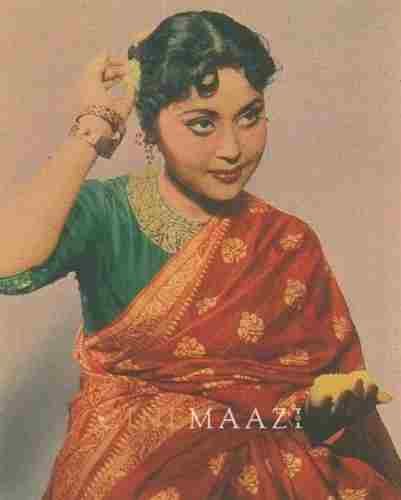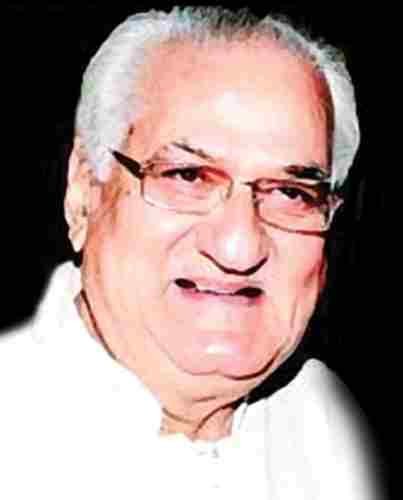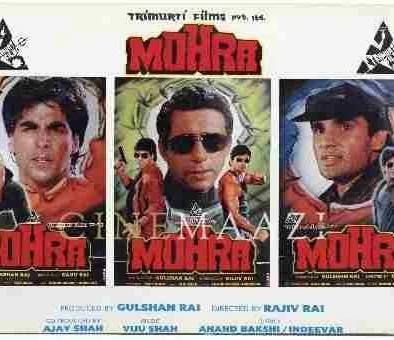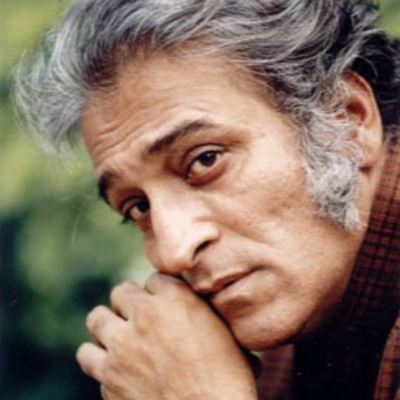Sumitra Bhave
Subscribe to read full article
This section is for paid subscribers only. Our subscription is only $37/- for one full year.
You get unlimited access to all paid section and features on the website with this subscription.
Not ready for a full subscription?
You can access this article for $2 , and have it saved to your account for one year.
- Born: 12 January, 1943 (Pune)
- Died: 19 April, 2021
- Primary Cinema: Marathi
Prominent Marathi and Hindi film director and National Film Awards winner Sumitra Bhave is known for critically acclaimed films such as Dahavi Fa (2002), Devrai (2004), Vastupurush (2002), Astu (2013), and Kaasav (2017). Vastupurush was awarded the Best Feature Film in Marathi at the 50th National Film Awards while Kaasav, which depicted the issue of depression among youngsters in relation to the life and the nesting cycle of olive ridley sea turtles, was declared the Best Feature Film at the 64th National Film Awards. She did not hail from a cinematic background, and her films, which revolved around themes such as ecology, mental illness, modernity, tradition, education and social mores, reflected her formidable training and active efforts in the field of social work. As a film director and scriptwriter, she addressed offbeat subjects, making an indelible impression on vernacular cinema with her incisive films which penetrate the psychological recesses of the human mind. She collaborated with Sunil Sukthankar on multiple film projects; they shared a common vision of creating social awareness through cinema. From a full-time sociologist, she accidentally turned to short films and gradually moved into full-time film production, winning wide acclaim. A true ‘social scientist’ filmmaker, her enormous and impactful social work experience found reflection in her carefully crafted films, which went on to win several international, national and regional film awards.
Born on 12 January 1943 in Pune, she graduated from Fergusson College, Pune, and earned a Master's degree in Political and Science Sociology from Pune University. Acquiring another Master's degree in Political Science and Sociology and a Diploma in Rural Welfare from the Tata Institute of Social Sciences, Mumbai, she engaged in voluntary work for various organisations. Teaching at the Karve Institute of Social Service, Pune, for a decade, she later worked as a Project Manager for Community Aid and Sponsorship Program, Mumbai, also publishing various investigation and research papers on the subject. She also worked as a Marathi language newsreader with All India Radio, New Delhi.
Her work in films began in 1985, while working as the Director of Research Project for Stree Vani. She made a short film Bai portraying the strength of a woman from the slums to survive adversities. Produced by Stree Vani, the film was met with a good response. It went on to bag the National Film Award for Best Non-Feature Film on Family Welfare at the 33rd National Film Awards, winning honour for “its realistic portrayal of a poor, oppressed housewife who succeeds in her determined effort to rehabilitate herself and realise her potential to be on her own.” She went on to make another short, Paani (1987). This film also won a National Film Award, adjudged the Best Educational/ Motivational/ Instructional Film at the 35th National Film Awards. Other shorts she went on to direct include Mukti (1990), Chakori (1992), Laha (1994), and Three Faces of Tomorrow. Her literary contributions earned her the Chitra Ratna Puraskar and Kamdhenu Award.
Her collaboration with Sukthankar started after he completed his graduation and film direction course from the Film and Television Institute of India, and joined Bhave as an assistant, working on three short films. Their achievement was to go beyond the traditional themes of feudalism, exploitation, and marital problems which have been repeatedly explored in parallel cinema.
She made her feature film directorial debut along with Sukthankar with the Marathi film Doghi (1995). Depicting the story of two sisters and their mother caught in rigid and superstitious social structure, the film went on to win wide critical acclaim. A masterful essay on the clash between modernity and tradition in a society in perilous flux, it earned several awards including Best Film at the 32nd Maharashtra State Film Awards and the Best Film on Other Social Issues at the 43rd National Film Awards.
Together they went on to direct the Hindi film Zindagi Zindabad (1997). It was based on the real-life story of a teenager who risks his own life to care for a person stigmatised by HIV/ AIDS. The year 2002 saw the release of two Marathi films made by Bhave and Sukthankar, namely Dahavi Fa and Vastupurush (2002). After Children’s Film Society declined to produce Dahavi Fa, the film was eventually funded by their friends and was released under the duo’s production company Vichitra Nirmiti. Both films came in for considerable critical acclaim. Vastupurush, which the duo considers as their “important and favourite film” was awarded Best Feature Film in Marathi at the 50th National Film Awards. It revolved around a feudal family in western Maharashtra caught in the throes of changing times. Dahavi Fa was adjudged Best Film at the 40th Maharashtra State Film Awards, also winning the duo the Best Director award. Starring Atul Kulkarni, it was a powerful exposition of a discriminatory, grinding education system, a worthy cinematic complement to Charles Dickens’ 1854 classic Hard Times.
Next, Bhave collaborated with Sukthankar to make their next Marathi film Devrai (2004). Based on the subject of schizophrenia, it featured Atul Kulkarni and Sonali Kulkarni in the lead roles. Appreciated for its depiction of the mental illness as well as the performances of its leads, the film won several awards such as the Best Film on Environment Conservation/ Preservation at the 52nd National Film Awards, Best Film, Best Director, Best Actor, and Best Actress award at the 11th Screen Awards Marathi and the Award for Best Film with Social Message at the 42nd Maharashtra State Film Awards.
The duo’s Badha (2006) portrayed the tale of a woman from the shepherd community who battles depression owing to the stigma and superstition existing in the community. Nital (2006) trained the lens on the stigma associated with the skin condition vitiligo in Indian society. It was honoured as the Best Film at the 44th Maharashtra State Film Awards, also bagging the Best Director award for Bhave and Sukthankar.
She went on to make another short film in Hindi with Sukthankar in 2007, titled Bewaqt Barish. Financed by the European Union and produced by Muktangan Mitra, it focuses on the issues surrounding HIV/AIDS, sex and sexuality. It was based on the Oxford Committee for Famine Relief's work with rural and tribal communities in the Rajasthan and Odisha states of India.
The year 2009 saw two of the release of their collaboration—the Marathi films Ek Cup Chya and Gho Mala Asla Hava. The former tells the story of a common man who challenges the Government authorities using the Right to Information Act, 2005, an act of the Parliament of India that gives its citizens the right to access government records. It was honoured as the Third Best Film at the 2009 Maharashtra State Film Awards, also winning Bhave-Sukthankar the Best Director award. A light-hearted take on marital problems, it also marked the film debut of actress Radhika Apte, who had previously acted only in theatre.
The duo’s Hindi language feature-cum-documentary film Mor Dekhne Jungle Mein (2010) was produced by the BAIF Development Research Foundation. Inspired by their ‘Wadi’ project, it focused on the involvement of urban youth in rural development and the rehabilitation of tribal families. Their 2011 Marathi film Ha Bharat Majha portrayed the irony in Indian society of those who support the 2011 Indian anti-corruption movement started by activist Anna Hazare but continue to practice small corrupt acts in their daily lives. The film won the Best Marathi Film at the 10th Pune International Film Festival.
Their Marathi film Samhita (2013) won positive reviews for its story, direction, music, and performances. Honoured with two awards at the 60th National Film Awards, Bhave was awarded for the Best Screenplay at the 11th Pune International Film Festival.
The duo’s next Marathi film, Astu was completed in 2013, but owing to a lack of distributor, was released via crowd-funding in 2016. It revolved around a Sanskrit scholar who is suffering from Alzheimer’s. It won appreciation for its depiction of the disease and the performances of its leads. Among the awards it won, Bhave earned the Best Dialogue at the 61st National Film Awards.
The Hindi short Phir Zindagi (2015) dealt with the subject of organ donation. It was followed by the Marathi film Kaasav (2017), which depicts the issue of depression among youngsters in relation to the life and nesting cycle of olive ridley sea turtles. Much-acclaimed, it starred Alok Rajawade as Manav, a disturbed, alienated and suicidal boy who is sheltered by a woman Janaki (Irawati Harshe) battling loneliness. The film sensitively and intellectually shunned the gimmicks deployed by mainstream cinema to communicate how patience and understanding can bring relief to those battling depression. Awarded the Best Feature Film at the 64th National Film Awards, it was the fifth Marathi film to win in this category. It also earned Best Film at the 55th Maharashtra State Film Awards.
Bhave’s Dithee (2019) premiered at the Pune International Film Festival. Bhave had been working on this film for many years but the project could not start due to a lack of producers. Written and directed by her, under her banner Sumitra Bhave Films along with Mohan Agashe, the film depicts a simple ironsmith’s journey of undergoing the pain of his son’s death and experiencing the non-duality of life and death. The film was also showcased at the Cannes Film Market in 2019. Dithee also marks the last directorial film of Sumitra Bhave.
She had lent her voice to the character of Sindhubai Jadhav in the film The Disciple (2020) directed by Chaitanya Tamhane. It told the tale of a young aspiring classical singer, with Jadhav being a veteran singer of yesteryears, whose audio recordings are only now available.
Sumitra Bhave passed away on 19 April 2021 in a Pune-based hospital, following a brief illness. She was 78. At the time of her demise, she was working on three films and their scripts. She remains memorable for crafting a string of sophisticated films that belong to a select elite of Marathi and Indian vernacular cinema and bagged several international, national and regional prizes including multiple National Awards. Refusing to water down complicated issues to woo audiences, she stayed true to the bedrock of her belief: namely to help create a healthy society.
-
Filmography (1)
SortRole
-
Astu / So Be It 2013
-








.jpg)



